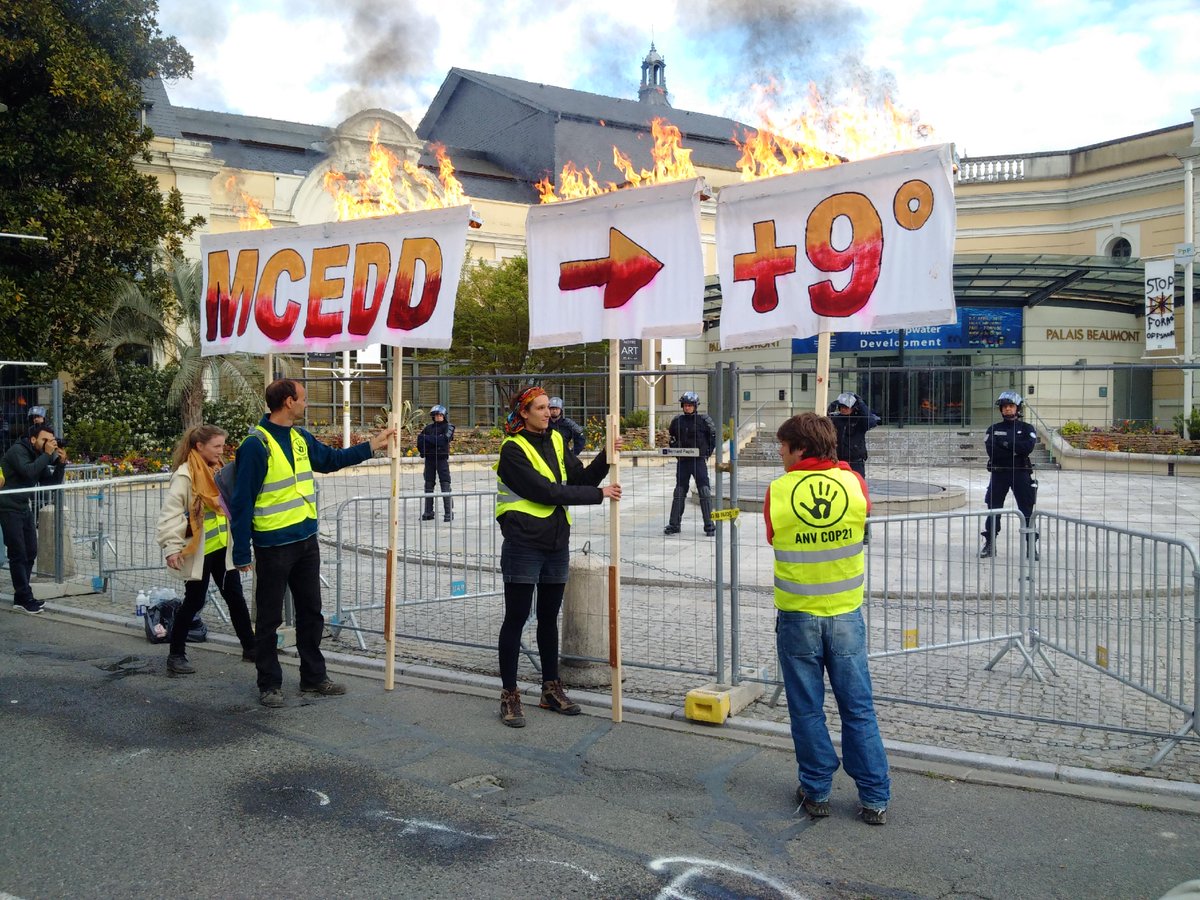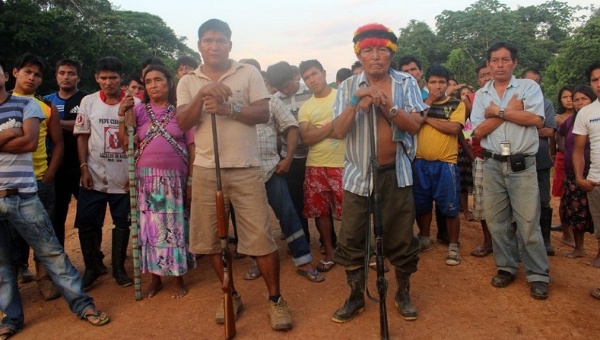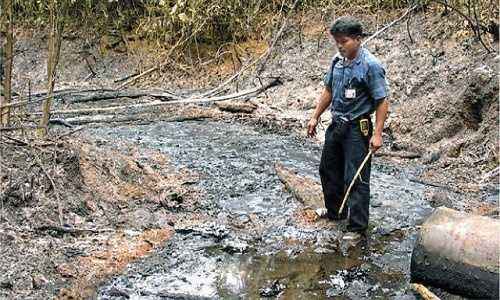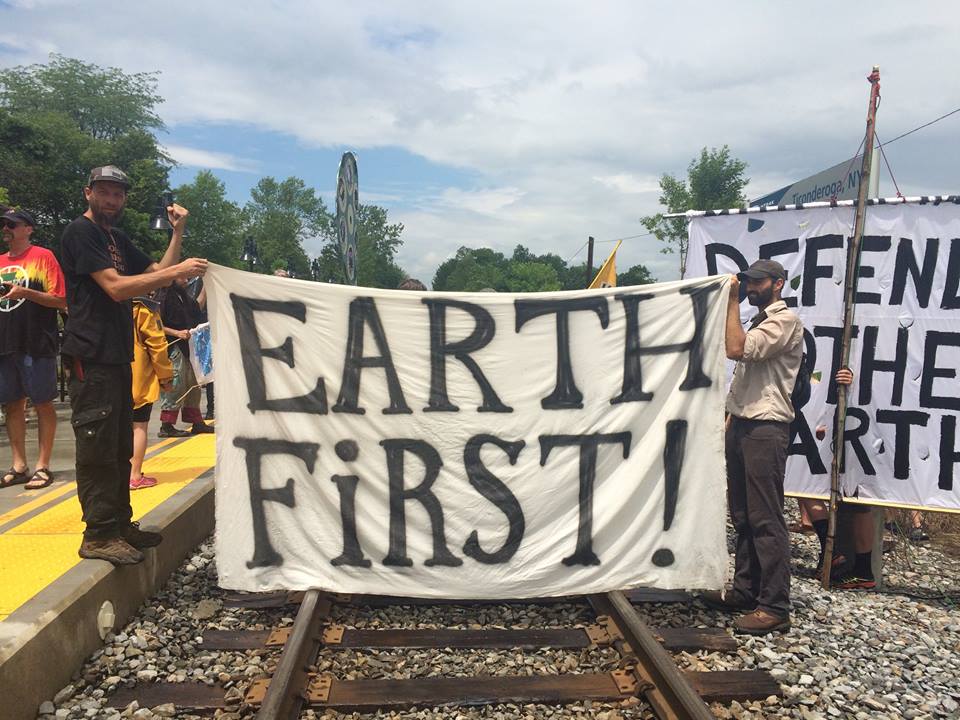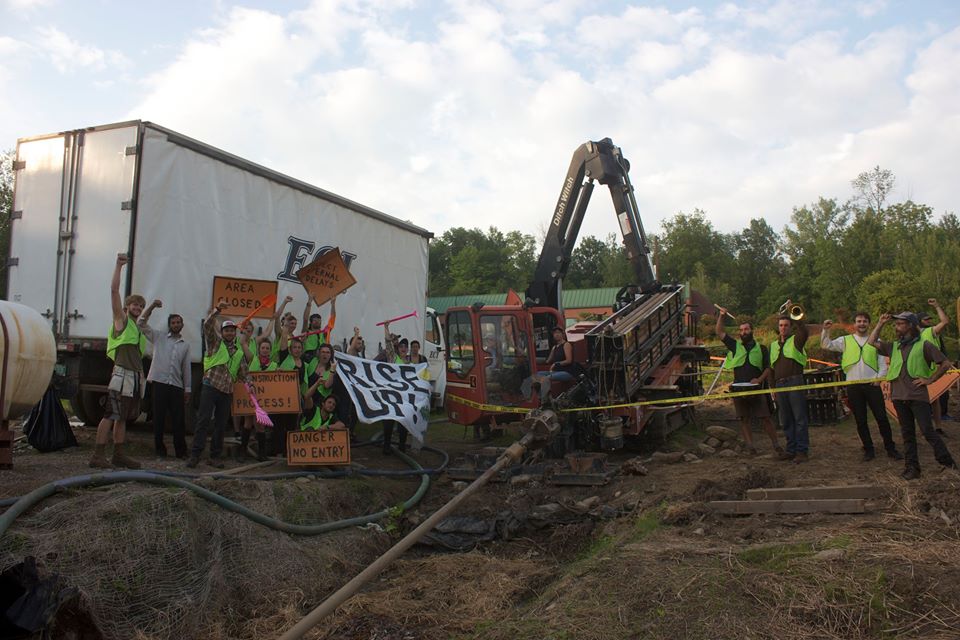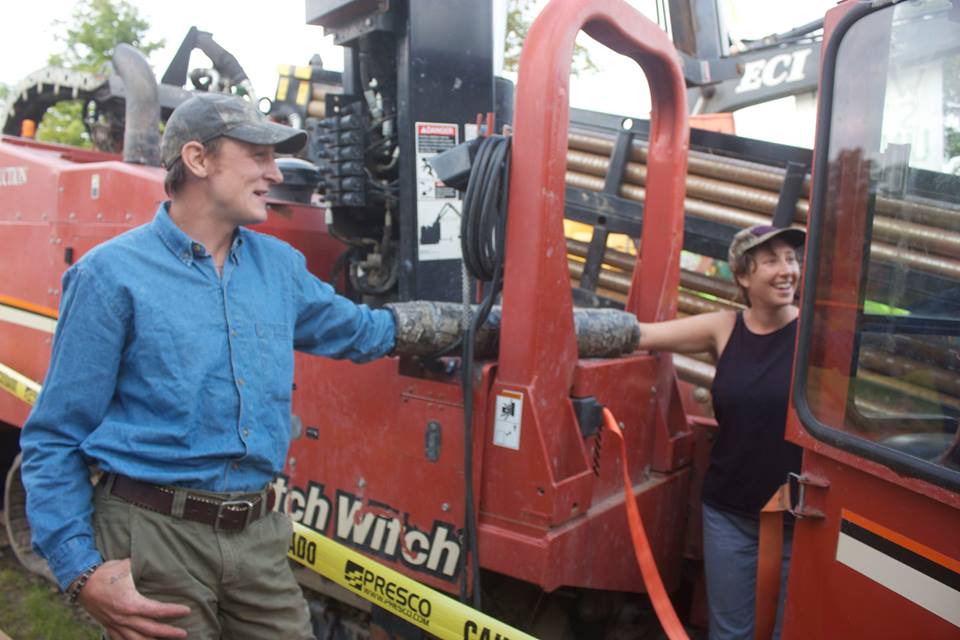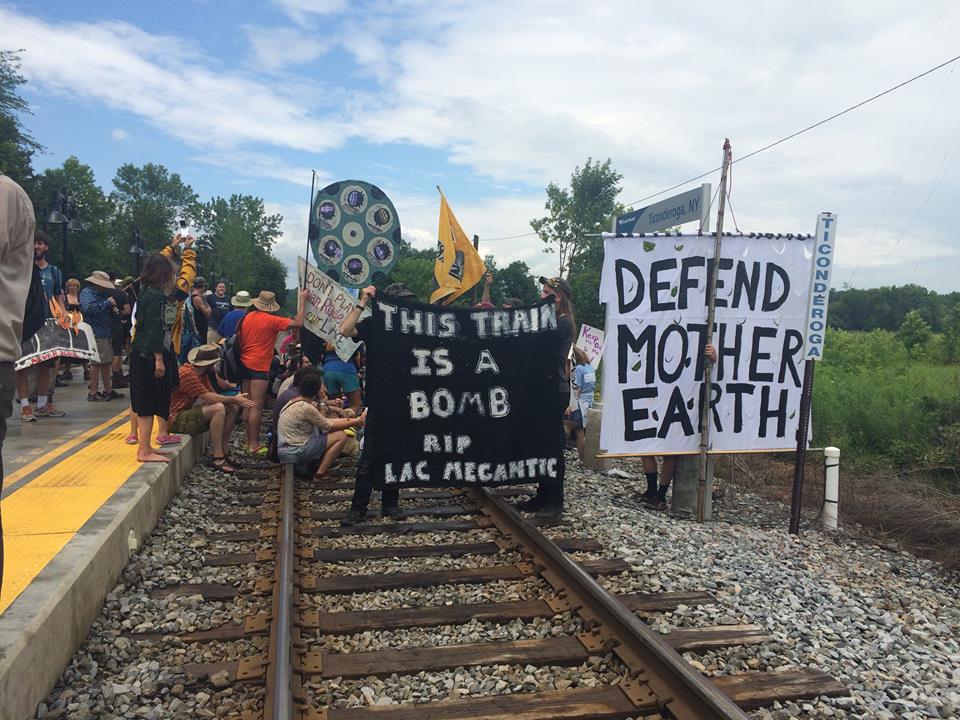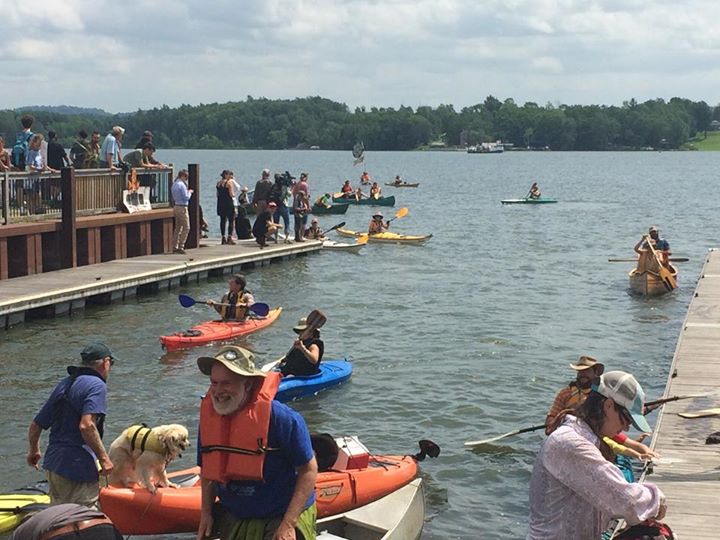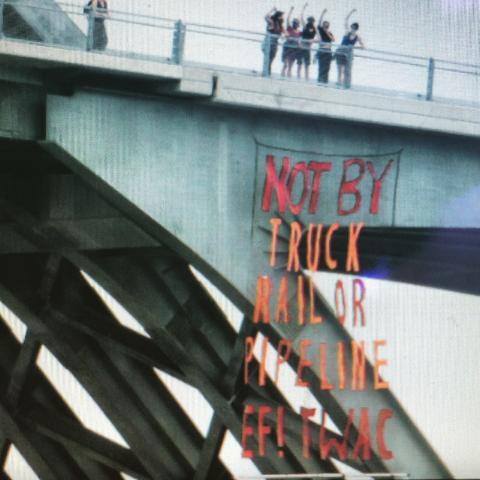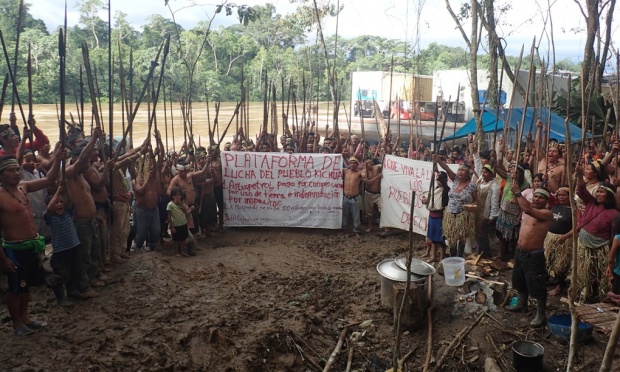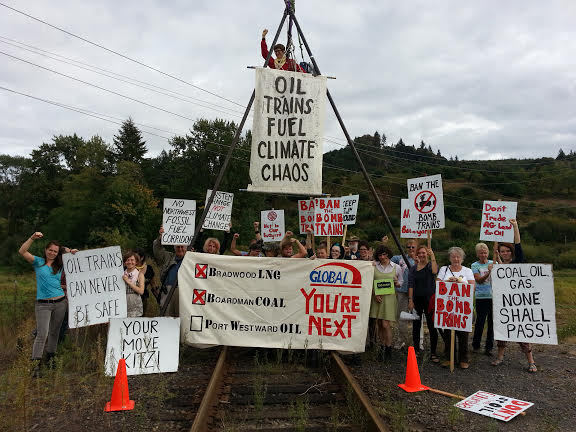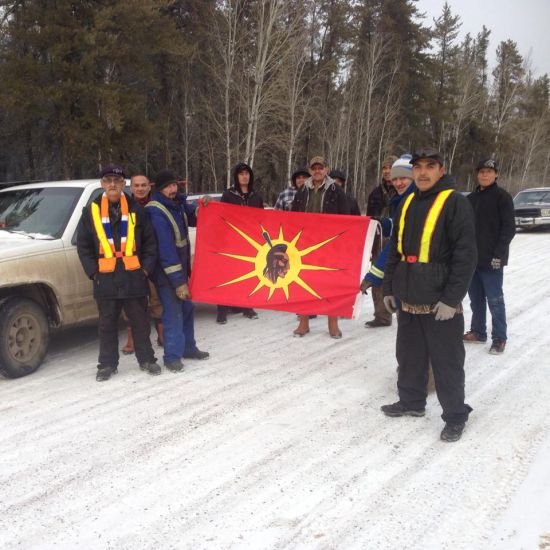8th April 2016
The Oil and Gas companies are holding a conference on deepwater oil and gas and how to be more efficient to further exploit deep sea fossil fuels.
About 500 climate activists have blockaded and disrupted the first day of the conference.
The largest oil and gas companies around the world have decided to meet in Pau from April 5 to 7, less than 4 months after the COP21. There goal is to increase the exploration and exploitation of hydrocarbons in the sea. “Forever further, ever deeper and in conditions more extreme is a crime against the Oceans”, denounced climate protection organizations. The coalistion of community, environmental and climate organisations announced they would block the holding of this strategic summit, using non-violent actions and mobilizations. The protests were preceded by a climate action camp, Camp Siren.
Activists say that choosing the climate is blocking the exploitation of new hydrocarbon deposits and protecting the ocean. They ask that the French government: suspend any type of financing of the fossil fuel sector – neither grants nor investment for coal, gas and oil; and to cancel ongoing hydrocarbon deposit boreholes and cancel all exploration and exploitation rights by fossil fuel companies. The money diverted from fossil fuels must go to the transition to fair and sustainable societies. It must also fund the conversion industries and transition of those presently working in fossil fuels.
Total’s executive Arnaud Breuillac articulated that due to the fall in oil prices since 2014 oil company profits have suffered and forcing companies to cut costs and find savings, but that oil and gas was still needed despite the growth in renewables.
“To ensure the right level of profitability, oil companies and services companies must work together to find innovative ways to bring cost down,” Breuillac told other oil industry executives and experts according to Reuters at the conference.
“We need to increase our collaboration, to find better ways to share risks and to collectively find a new balance,” Breuillac said. They are hoping to manage and ride the downturn, even though the climate imperative is that oil and gas development needs to stop.
On the first day protesters successfully disrupted and blockaded the conference venue, both from the inside and outside. Journalist Patrick Piro has put together this storify.
Background storify.
Multinational oil and gas companies are organising to drill ever further, ever deeper into the abyss of the ocean. A summit is planned for the French city of Pau on 5-7 April 2016, organised by the French oil multinational Total, less than 4 months after the Paris climate talks and Paris Agreement.
After 9 hours people are still blockading the entrance to the Palais Beaumont where the conference is being held. Pau is the headquarters of Total’s research and development division.
Yes, teargas was used indiscriminately against non-violent protesters.
Two activists infiltrated the conference and locked themselves to plenary chairs, before being cut free and excorted out by a large number of riot police.
On Day 2 there were climate emergency disturbances at the hotels of delegates. In the morning oil executives they discovered that activists had locked on to the hotel gates preventing them from leaving until the gendarmes had detached the activists.
In the late afternoon about 600 people formed a human chain around Palais Beamont, with music and street theatre. This was followed by a concert in Beaumont Park with light projections on the conference venue.
Meanwhile at Camp Sirene climate activists discuss strategy and prepare for the day to blockade Palais Beamonth where the MCE Deepwater conference is being held.
Climate activists lock on to Hotel gates, preventing police and oil executives leaving for the MCE Deepwater conference in Pau…
Police had to dismantle the grill with the activists locked on..
…and at last the oil executive delegates can get out of their hotel. Patrick Piro writes that it is a Provisional end of the disturbances. Over night there were 3 noisy interventions in the hotels of the delegates.
Waking up the conference attendees in the Hotel Navarre. It is a climate emergency after all….2 groups of @AnvCop21 activists entered in the Beaumont hotel at 2 and 4 o’clock to wake up #STOPMCEDD delegates. Anne Sophie Trujillo put it nicely: #STOPMCEDD is “I will go after your dreams” or I’m your nightmare.
Meanwhile activists lock on round delegate vehicles lie in the road, storm the venue site to blockade entrances including locking-down the car park, and handcuff themselves to delegates’ bags!
“Four months after the COP21, an international summit, named MCE Deepwater Development (MCEDD) will meet at Pau of 5 to 7 April multinational oil companies and offshore operators to “succeed a significant decrease in costs to the industry operating in deep sea to remain competitive.”France Nature Environnment is strongly opposed to the holding of the summit of the energies of polluting and destructive past that does not also pay their “true price” and denounces the industrial provocation months after the Paris agreement on climate.”

